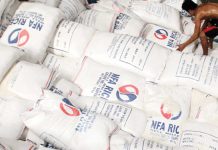
MANILA – Pilipinas Shell Petroleum Corporation is urging the Department of Energy (DOE) to review its proposed circular on the unbundling of petroleum prices.
The circular was reportedly released as part of DOE’s mandate to monitor price movements in petroleum products such as gasoline, automotive and industrial diesel, kerosene, jet fuel, bunker fuel oil and household and automotive liquefied petroleum gas, in order to protect the interest of consumers.
However, the Energy Department must set clear guidelines on the implementation of the unbundling of fuel prices according to Pilipinas Shell President and Chief Executive Officer Cesar Romero.
“This has to be carefully studied because there are some legal implications associated with deregulation if and when the circular comes up. It has to be ensured that it is legally compliant with the deregulated nature of the industry,” Romero said in a press briefing held in Makati City on Tuesday.
The company official said that the annual financial reports of oil firms are enough for the government to determine if they are earning excessive profits at the expense of consumers.
“The annual report is a carefully studied document with each line item carefully thought through to make sure that it gives a fair representation of a company’s financial performance. To require another set of financial statements to be made needs to be carefully thought of because our financial statements are audited. Each line item is well defined and it is supported by proper accounting standards,” said Romero.
“We need to be clear with the definitions and accounting standards what that document will govern with,” he added.
The DOE is currently finalizing its circular on the unbundling of prices of petroleum products being imposed by oil companies on its customers.
Under the draft circular, oil companies will be required to provide a weekly notice of the price adjustments.
The report would also include the computation of their products’ components based on the elements involved in the international price movement which cover product cost, freight cost, insurance and foreign exchange, and in the local component which are duties, taxes, and industry take.
The DOE recently said that the information of the fuel prices will only be disclosed between the department and the oil companies once it issues the circular.
Various consumer groups urged the DOE to publicly disclose data on the price unbundling given the recent increase in fuel prices as well as higher excise taxes being implemented under the Tax Reform for Acceleration and Inclusion (TRAIN) Law.
Meanwhile, Shell said the volatility in oil prices amid the declining inflation rate in the country is a major challenge on ensuring their profitability.
“What we have seen is the inflation rate has moderated that is helped by the fact that the price of other commodities did not rise as much. Last year, food prices were also increasing in addition to oil,” according to Romero.“We don’t foresee 2019 to be significantly easier than 2018. It shall be the same in terms of challenges.”
Other challenges that the company faces for this year include higher fuel excise taxes and lower regional refining margins.
The Philippine Statistics Authority (PSA) reported that the inflation rate for April has eased to 3 percent from 3.3 percent in the previous month amid slower increases in food prices.
Pilipinas Shell has reported a net income of PHP 5.1 billion for 2018 amid heightened competition and higher fuel prices. It has delivered PHP 14.1 billion cash from operations which are sufficient to cover its capital expenditures and dividend payments last year.
Shell has earmarked PHP 6 billion in capital expenditures this year to support expansion plans of its retail business and optimization projects in the manufacturing and supply segments. (PNA)







